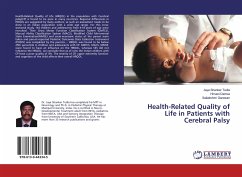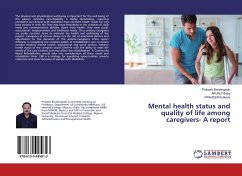Life expectancy has increased across Europe and globally (by 5 years between 2000 and 2015), although healthy life expectancy (indicator of how many years people may be expected to live without major health problems) is decreasing, according to the WHO, Eurostat, Romanian National Institute for Statistics, and Romanian Academy. Among the factors triggering this lower healthy life expectancy there is a continuously rising incidence of depression, which is associated with a slower therapeutic response in elderly patients, higher suicide risk, significant functional impairment, and a negative impact on caregivers, which can lead to important dysfunctions in other people's lives, besides the patient's. For these reasons, it would be important to design screening programs in high-risk elderly individuals in order to detect early signs of major depression and to begin therapy as soon as possible after confirmation of the diagnosis. These should be priorities for any health program targeting the geriatric population.
Bitte wählen Sie Ihr Anliegen aus.
Rechnungen
Retourenschein anfordern
Bestellstatus
Storno








